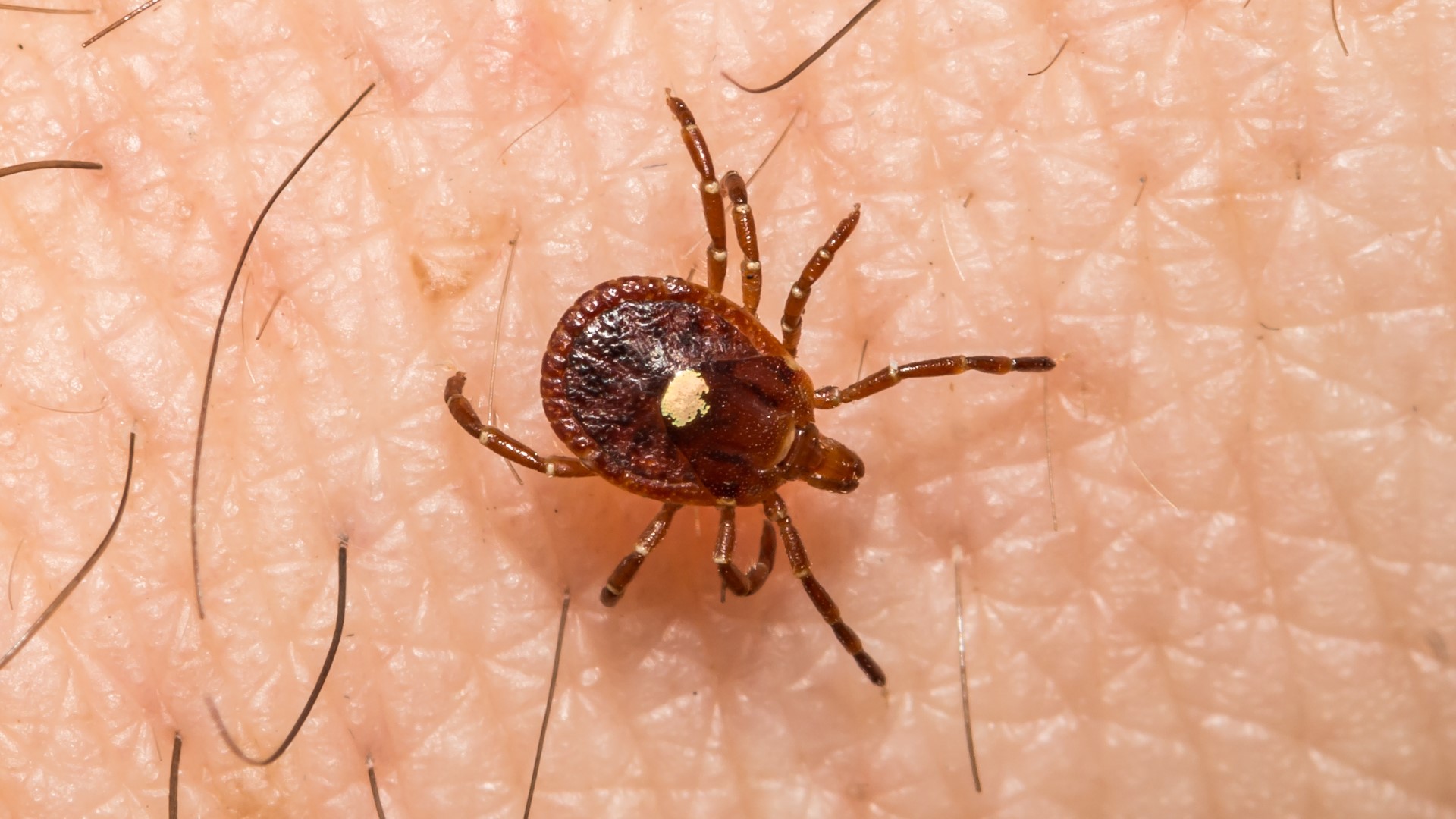ARKANSAS, USA — It’s no secret that Arkansas and Oklahoma are one of the most beautiful parts of the country. Because of this, Arkansans spend a lot of time in the great outdoors.
However, with the woods, trails and greenery come a few dangers, tiny ones, that can cause big life changes.
“I’m allergic to toothpaste, deodorant, shampoo conditioner, soap, laundry detergent, over-the-counter medication, capsules, which are made with gelatin and glycerin which I can’t have,” said Josh Lantzch.
And while this may sound like a lot, this barely scratches the surface of things Josh Lantzch is allergic to.
“Yellow dye, blue dye, red dye, elk, deer, beef, pork, and anything with hooves and all other mammal biproducts," said Lantzch. These aren’t allergies Lantzch has had his whole life, he just discovered them about five years ago. “I have alpha-gal."
What is alpha-gal?
Alpha-gal starts with a tick bite, such as the lone star tick in most cases. From there, people can develop an allergy to red meat and other products made from mammals.
“Well, the Mid South has been historically the most common place to develop this allergy,” said Bentonville allergist, Dr. Tina Merritt.
Dr. Merritt not only helped to diagnose people like Josh, but she was also on the team that helped to discover the allergy.
“That is the hard part is everybody's different with alpha-gal some people do get hives, some people get full-blown anaphylaxis, some people get abdominal pain, and it's not just regular abdominal pain, it's like double over in pain kind of pain. It's usually is delayed so people don't associate it with the burger, they ate at six with waking up at two in the morning with hives,” said Dr. Merritt.
For Kelly Coe-Devore, shortness of breath led to her first trip to the doctor.
“Five years of colonoscopy, upper GI lung scans, CT scans, blood work, looking for anything possible. They just weren’t finding anything,” said Coe-Devore.
It wasn’t until recently that one doctor suggested she see Dr. Tina Merritt.
“I drove an hour and 20 minutes and I would have flown,” said Coe-Devore, desperate for answers, as her life has had to change.
“My husband loves beef. He’s a meat and potato kind of guy and that’s difficult because I can’t even cook that for him anymore,” said Coe-Devore.
Just the smell of beef makes her sick. Coe-Devore said the last few years have been isolating at times, but she’s starting to realize she's not alone in this battle. It is one faced by her doctor as well.
Dr. Merritt herself suffers from alpha-gal.
“So six hours after chewing up a piece of steak I passed out,” said Dr. Merritt.
Dr. Merrit said everyone's symptoms look a little different.
“And so my hair started falling out during college whenever I realized I was eating all this stuff that I shouldn't and I can translate that to when I got alpha gal,” said Lantzch.
“If I pet one of my dogs I'll get a rash on me. But the long-haired dogs I didn’t have as much of a reaction to,” said Coe-Devore.
One common factor for all those with alpha-gal is the struggle to attend social functions, like parties and dinner outings, especially around the holidays. “I always know if I’m making it I’m good but if someone else is making it, you never know,” said Lantzch.
Even eating at a restaurant can be a challenge, if a piece of chicken is cooked on a grill that’s been cleaned off but earlier had steak on it, those who suffer from the alpha-gal allergy are likely to get sick.
“There's currently no cure, there’s some treatments that are a little outside of the box. I haven’t seen anything scientifically proven to prevent it. The main thing is to do avoidance measures and then have an action plan if you do get exposed to something,” said Dr. Merritt.
Dr. Merritt sees about 10 patients per week with the allergy, some diagnosed before seeing her and others discovering it for the first time.
“Arkansas, Missouri, Kansas, and Oklahoma, this area has a very high prevalence of alpha-gal allergy,” said Dr. Merritt.
It's due to higher exposure levels in what doctors call the "four corners" because of activities like hunting, farming, mountain biking, and hiking.
“Last year, I think we spent over 80 hours in the tree stand from mid-October to mid-November,” said Lantzch.
Since his diagnosis, Lantzch said he's pulled off multiple lone star ticks, but he refuses to let them or his allergy keep him away from the great outdoors.
“It's like don't let the fear of the tick keep me from doing what my passion is,” said Lantzch.
Dr. Merritt said it’s important to not be fearful and continue to live your life to the fullest. But she does recommend taking preventative measures when going outside, especially around wooded, and grassy areas. She said it’s important to use bug spray, wear tall socks, and long pants and taller boots if you can.
Dr. Merritt also recommends repellant when camping and always checking yourself and your clothes for ticks. If you pull one off and there’s a bullseye or you begin to have symptoms, Dr. Merritt says you should call your doctor immediately.
Watch 5NEWS on YouTube.
Download the 5NEWS app on your smartphone:
Stream 5NEWS 24/7 on the 5+ app: How to watch the 5+ app on your streaming device
To report a typo or grammatical error, please email KFSMDigitalTeam@tegna.com and detail which story you're referring to.

